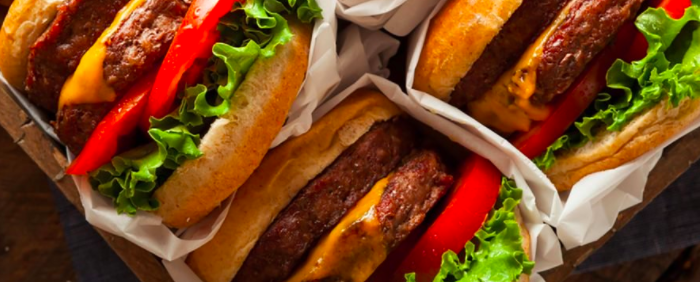
Do you buy some foods with a firm belief that they are good for you?
Are you deceived by so-called health foods?
Many foods seem healthy because of their names, or because they are derived from dishes from a nation renowned for its healthy cooking. Some, however, are surprisingly unhealthy. Also, many packaged foods are healthier than the junk foods they try to mimic, but still do not provide a good nutritional intake. A small category of these foods are nutritious eaten in moderation, but difficult to eat in small amounts. Would you be surprised to learn that dried fruits and couscous are part of this category? We asked Kim Arrey, a Montreal nutritionist, to identify and explain these surprising food offenders.
1. Couscous
Although it looks like a whole grain, couscous is actually a very small pasta that is a staple in some North African countries, often served with meat stews. Everywhere else, he has earned a “health” reputation probably because of his popularity among vegetarians and foodies for his versatility and unique texture. “It’s really just refined wheat that has a nutritional value about the same as white pasta,” Arrey says. Opt for bulgur, crushed wheat or quinoa, which are healthier alternatives.
2. Chips of bananas and plantains
Some of us love crunchy and salty chips. On the other hand, if you try to stay away from potato chips and replace them with bananas or plantains, you’ve got it all wrong. A fried food is a fried food, be it a potato, a banana or a plantain, less sweet. “You have to tell yourself that they’re no different than potato chips,” says Arrey. Most of these potato chips have added sugar and salt, not to mention their high fat content. ”
3. Japanese rice crackers
But there is seaweed in there! And it comes from Japan, a country where people eat “health”! You can hear this chorus to justify your reliance on these crackers also known as Japanese senbei. Yet, they are far from being an ideal supplement to your diet. The seaweed is actually a healthy food, but only a small amount is used as a seasoning in the panoply of Japanese cookies that you can find in grocery stores. “The crackers themselves are simply made of refined rice flour,” says Arrey.
4. Dried apricots
“Eating any dried fruit can be a headache,” says Arrey. Dried fruits are really nutritious and dense in vitamins, but concentrated in calories, “she says. “For example, I could eat two apricots very well, but if only one of them is dried, it’s like I’m eating six or eight.” Also, dentists warn against dried fruit, preferring that they be consumed during meals because they stick to tooth enamel and can cause cavities. The ideal is to consume fresh fruit, especially at the snack, or eat the dried fruit in moderation, in a muesli or cereals.
5. Cream cheese
Rich and delicious, often eaten on a bagel or crackers, cream cheese is generally considered a balanced breakfast or snack. But keep the butter knife away; it’s not as healthy as you might think. “It’s a wonderful taste on the palate,” admits Arrey. I know it’s really good on your bagel, but it’s high in fat and does not have a lot of protein or calcium, “she says. Also, beware of cheeses with light cream. “They have reduced the amount of calories and fat, but have not added calcium or protein yet, so that nutrition is not better,” she says. Ricotta is a better spread, according to Arrey.
6. Rice crackers
For those who like crackers but need to avoid those based on wheat, rice crackers are an obvious choice. What makes them apparently healthy is the fact that they are often associated with the very restricted wheat diet. This means that they are only found in health food stores and, sometimes, in the specialty food aisle, in grocery stores. However, they are simply refined products rich in sodium (and even in artificial flavors) and lack fiber. “If you have the choice between a water cracker (consisting of water and flour, no added fat) or a cracker of salted rice, which have no fiber, choose the one you like,” Arrey says.
7. Muffins
“Most muffins are cakes wearing a dress,” says Arrey, referring to the paper cups in which they are baked. Not to mention giant muffins that contain no less than 800 calories. Unfortunately, it is often the muffins that tempt us when buying a breakfast because we assume they are an efficient fuel somewhere in between harmless and healthy. To make sure your muffin is healthy and not soaked in oil, cook your own muffins.
8. Ramen noodles
Presented with steamed vegetables (not included) on the package, it’s no wonder we thought Ramen noodles were a healthy food. It could also be because we only have to add water and the small packet of seasoning to cook them or because they come from Japan, that we think they are healthy. They are not. “These are just noodles in a salty broth,” says Arrey. Sorry to university students! Ramen noodles can fill your stomach, but without the addition of vegetables and protein, they are not a nutrient in your diet.